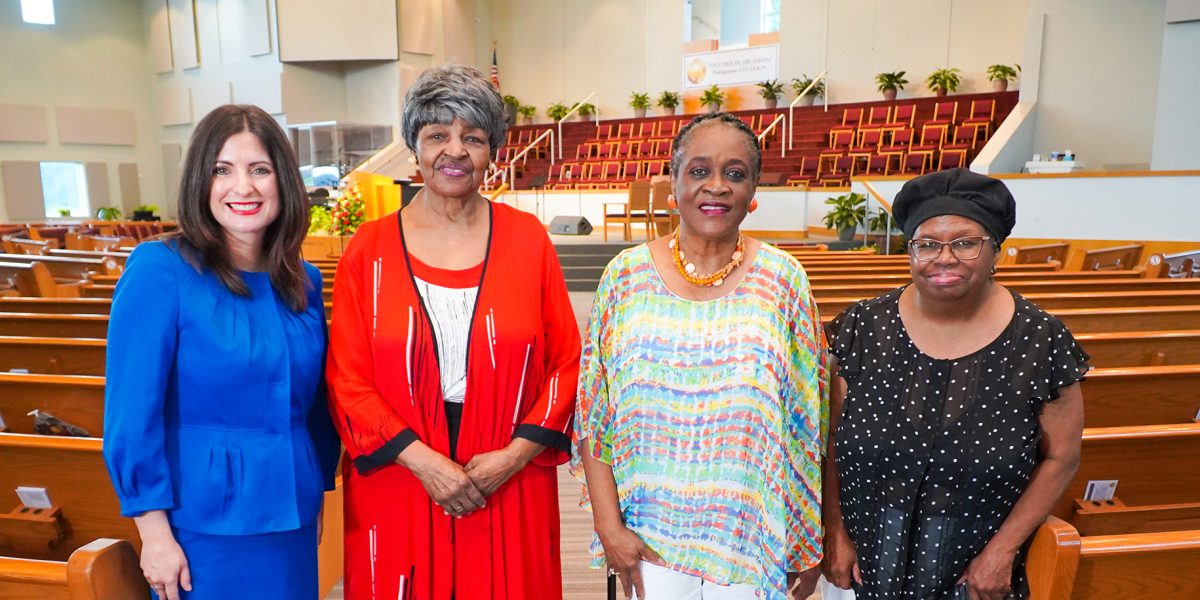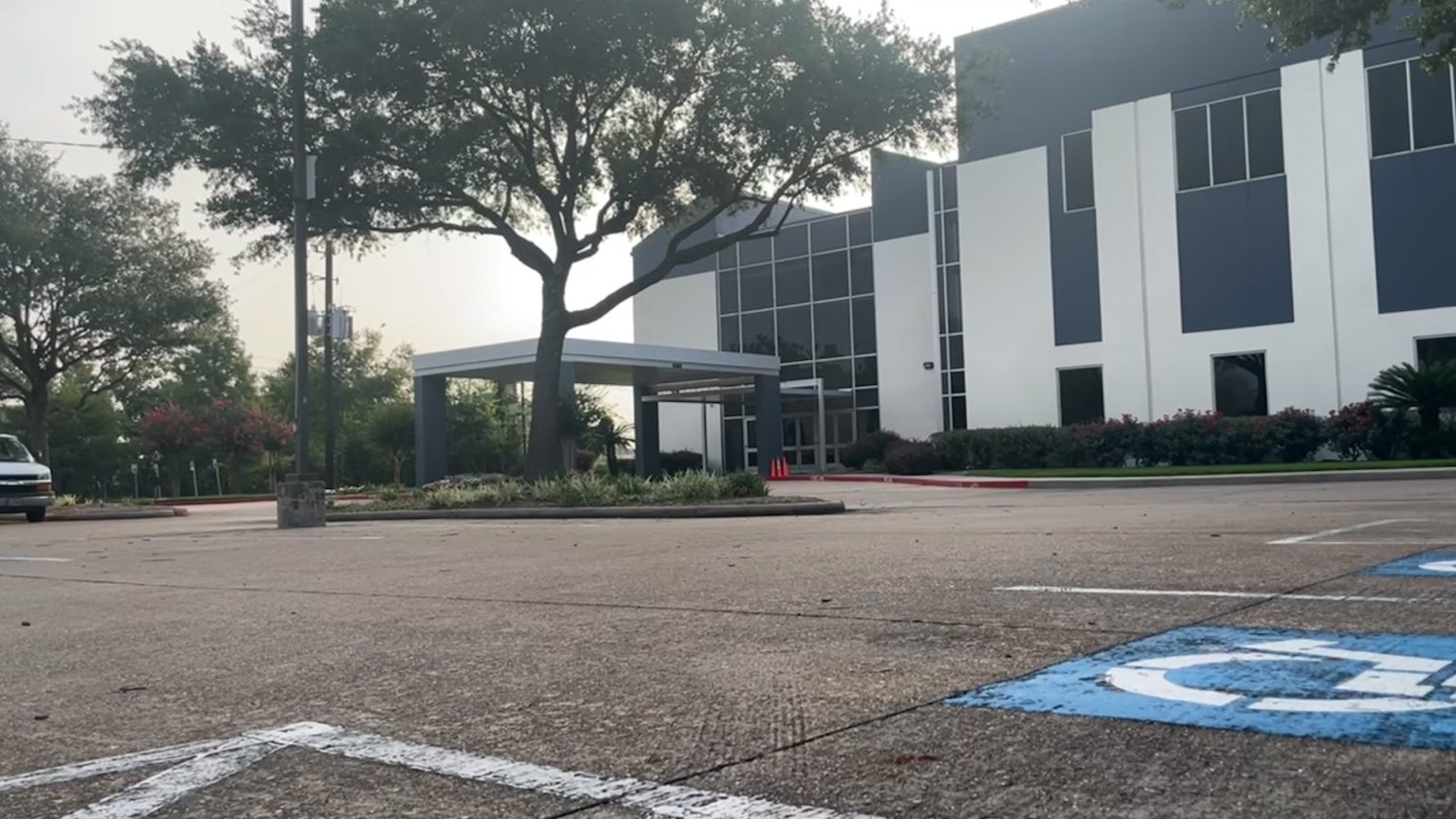
Founded in Freedom: Riceville's Enduring Legacy as a Texas Freedom Colony
As we mark 158 years since enslaved Black Texans learned of their freedom, two years after the Emancipation Proclamation, community members of one of Texas’ oldest freedom colonies reflected on their own history, which began even before June 19, 1865.
At the over 130-year-old Riceville Mount Olive Baptist Church in Southwest Houston, longtime Riceville residents shared their stories.
“I live in the same place where I was born on Riceville School Road,” Fay Dunwood, a direct descendant of the residents of the original Rice Village, which was later shortened to Riceville, said. “We had well water … and we had a sewer. We didn’t have regular city water or anything like that … We’ve come a long way.”
Riceville is one of 557 freedom colonies in the state of Texas and one of 13 in Harris County. According to the Texas Freedom Colonies (TXFC) Project — an educational, social justice initiative dedicated to preserving the heritage of Texas’ historic African American settlements. Formerly enslaved people settled these colonies during the Reconstruction and Jim Crow eras following Emancipation.
Freedom colonies provided safe spaces for Black Texans to avoid debt bondage, sharecropping, and racialized violence from white communities by living largely self-sustaining and independent lives on their own property, according to the TXFC Project, which documents and tracks information about known freedom colonies in an interactive map and database.
Perhaps less well known than other freedom colonies like Freedmen’s Town in Fourth Ward, Riceville’s rich history is preserved by the longtime residents and churchgoers who still call Riceville home.
Riceville and Its Anchor Institutions
Founded in the 1850s by Leonard Rice before Emancipation, Riceville’s history predates that of the freedom colonies founded between 1865-1930; Sister Alvies Carter, a longtime resident of Riceville, has herself interviewed members of the community to keep its history alive.
“I interviewed Deacon Hubbard, and he talked about how you could sit on his porch … and you can see all the way to Fondren [Road]. Those were rice paddies [and] cow fields,” Carter said. “Deacon Hubbard … owned a lot of land up here. And most of them did own their land. But a lot of people did work for other people, and they took their crops and everything to the city to sell … The church was the center of that community, and everything revolved around the church. So it really has a history.”
The original Riceville Mount Olive Baptist Church was organized by Rev. John L. Lilly on March 11, 1889, along with eight founding members, including Isiach Jackson, Sophia Edwards, Mary Rice, Simmom McCode, Susie Marshall, Vinia Marshall, Rocksanna Rice and Diana Jackson, according to the church’s website.
Dr. Andrea Roberts, the founder of the TXFC Project and an associate professor of Urban and Environmental Planning at the University of Virginia’s School of Architecture, spoke to the importance of “anchor institutions” during her June 2022 lecture at the Smithsonian National Museum of African American History and Culture.
“Clusters of landowners … came together so that they could be safe, for one, but also they would build institutions that would anchor these places. And they’re often all that remains – these churches, these schools, these homesteads, and sometimes just the cemeteries,” Roberts said.
Roberts’ grandmother, Viola Marie Jones, was raised in Riceville and was a member of the church for seven decades; Mayor Sylvester Turner honored her life in a recent May proclamation.
Riceville was once served by a segregated school that later became Brays Bayou Elementary, according to the Texas State Historical Assocation (TSHA).
Located on Almeda Road near Main Street, the school was named for one of the three main tributaries that drain into Buffalo Bayou. The school became a part of HISD in 1913 and closed in 1966, according to the Houston Independent School District’s website.
Challenges for Freedom Colonies
Riceville was not annexed to the City of Houston until the 1960s — as late as 1982, the community did not have city services, public water facilities, or sanitary sewers, according to the TSHA.
Carter, who served for 30 years as a secretary to a Riceville pastor, called Riceville’s founders “courageous” for building a community in an unincorporated area of Houston.
“Houston wasn’t established yet when they started this church … They built a community … and they used what they had,” Carter said.
Many freedom colonies were never incorporated and have little documentation or legal authority to make planning decisions, according to the TXFC Project. Colonies in urban areas are often labeled as “neighborhoods”, or are grouped within broader geographical regions based on racial census concentrations instead of being recognized as distinct, politically sovereign communities.
This distinguishes Texas freedom colonies from other freedmen’s settlements across the South; the TXFC Project cites Tuskegee, Alabama and Mound Bayou, Mississippi, as examples of settlements that receive scholarly or institutional attention, remain populated, have large anchor institutions like colleges, and are well-documented and mapped.
In her June 2022 lecture, Roberts identified three major threats to freedom colonies: vulnerability, invisibility, and lack of access.
“Often, all that people could afford was what people call ‘bottomland’ or flood-prone land,” Roberts said. “Many [freedom colonies] were unmapped. Some people never declared their land ownership, so it was never part of the public record … and [there is a lack of] access to the communities, [both] knowing where they are, as well as those communities being able to access the support that they need to prosper.”
The TXFC Project also attributes their decline to factors such as gentrification, cultural erasure, natural disasters, resource extraction, population loss, urban renewal, and land dispossession, with hundreds of settlements’ status and locations currently unknown.
Dr. Betty Keller, a professor of political science at Houston Community College, president of the Gessport Subdivision Homeowners Association and resident of the area for over 30 years, said that when residents die, their children cannot always pay the taxes on their property.
Riceville – Today and Tomorrow
Despite the challenges Riceville faces, residents are still active in their community. Members of the Riceville Church visit a local apartment complex on certain Saturdays to talk about the church and invite people to come to Riceville to worship. Dunwood said the church also works with Welch Middle School to support the students.

“We work with some of the girls [at Welch]. [For] one of the projects … we collected nonperishable food items for the students,” Dunwood said. “We also had personal hygiene for the girls and boys … and we have little things here at the church for the children [like] a boys mentor group … [and] a girls mentor group.”
Sister Mae Joyce Williams, a lifelong resident and a 60-year member of Riceville Mount Olive Baptist Church touted the church’s senior services.
“We have one of the most beautiful senior services whom [Dunwood] is over. She works with those seniors [and] takes them on trips … they have food – it’s just a great service for the church,” Williams said. “This is really good for our seniors because a lot of seniors are in their house all day. They don’t have a job, and some of them don’t have a lot of money to spend. So with [Dunwood’s work], they’re able to broaden their horizon.”
Roberts and the TXFC Project’s ongoing research aims to preserve freedom colonies like Riceville through participatory research, including opportunities to share stories about freedom colonies as a member of the public or as a descendant of the community, as well as join a sustained research effort through the project’s Adopt-A-County Program.
“We are really trying to build a comprehensive assessment of African American communities, not only as historic places but as contemporary places with Black historic pasts,” said Roberts in a 2020 interview with the American Planning Association’s (APA) Planning magazine. “Our mission is to avoid the sentimentality and memorialization of these communities by bringing them into discourse and research on contemporary planning and sustainability challenges.”
All of these research opportunities, along with a slew of additional resources, are available on the TXFC Project website.
Moving forward, Dunwood said residents have expressed interest in establishing a Riceville school, as well as add additional amenities to the church.
“We were going to expand what we have here to have a gym and more classrooms … and we had talked about having a senior garden,” Dunwood said.
From Keller’s perspective, more needs to be done outside the church to support the community, in which she said significant disparities exist.
“Look at this beautiful church. [It] came out of the community. And the people in this community, a lot of them have gotten out of poverty. But there’s poverty that still exists,” Keller said. “You have million-dollar homes on one side of the street, and then you have shacks on the other side of the street [worth] less than $10,000 with no running water.”
Keller said she hopes that other community leaders and local politicians will take action.
“Something needs to be done. And I know as a one individual, I can’t do much … but we still need to do a lot. Our politicians need to. They know. They just need to make it happen,” Keller said. “And hopefully people like me … keep in our minds other people in the community to make it happen. That’s my goal.”
To learn more about the Texas Freedom Colonies Project, visit thetexasfreedomcoloniesproject.com or email freedomcoloniesproject@gmail.com.
Source: Harris County Precinct 4





